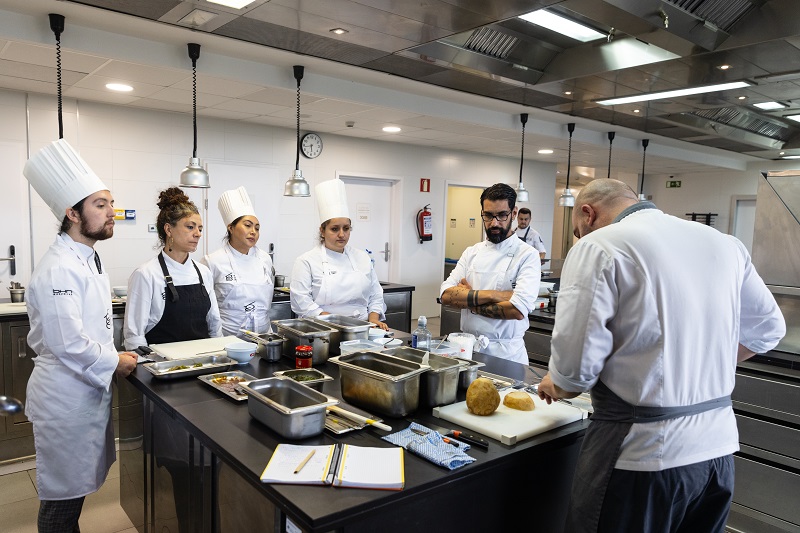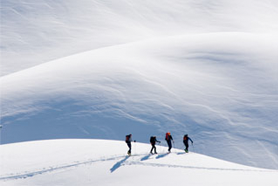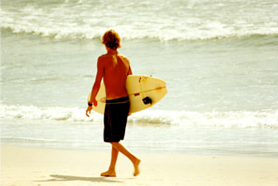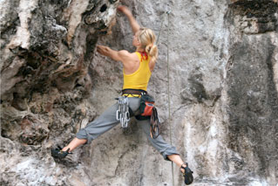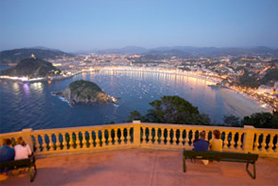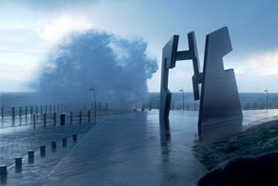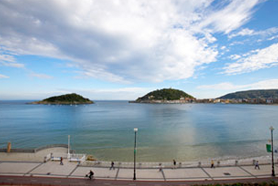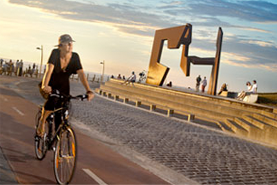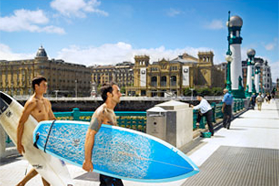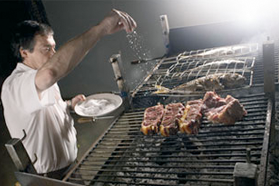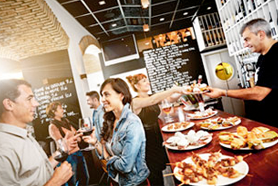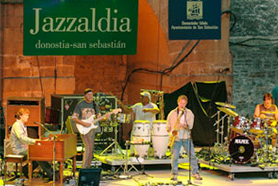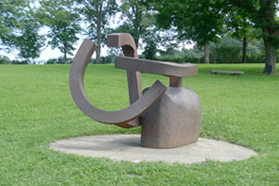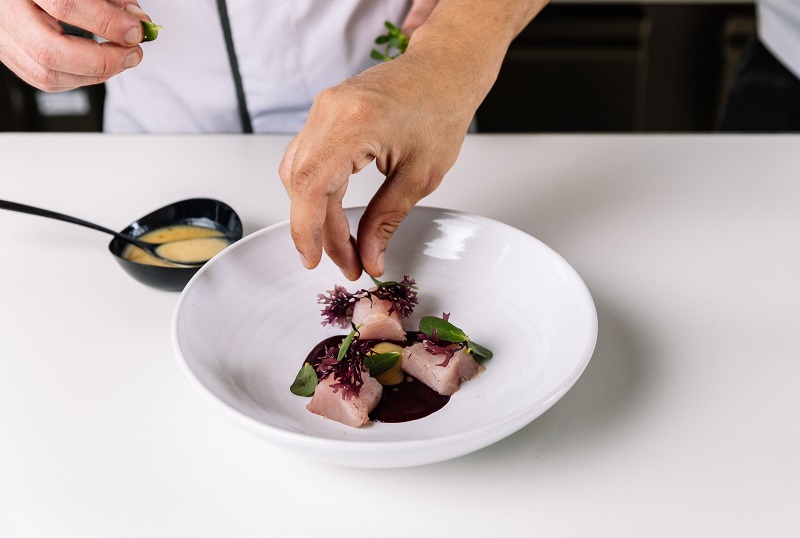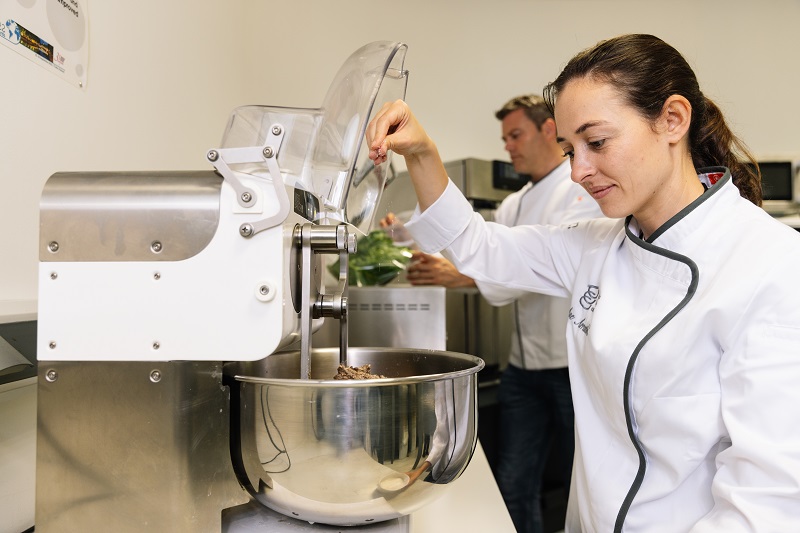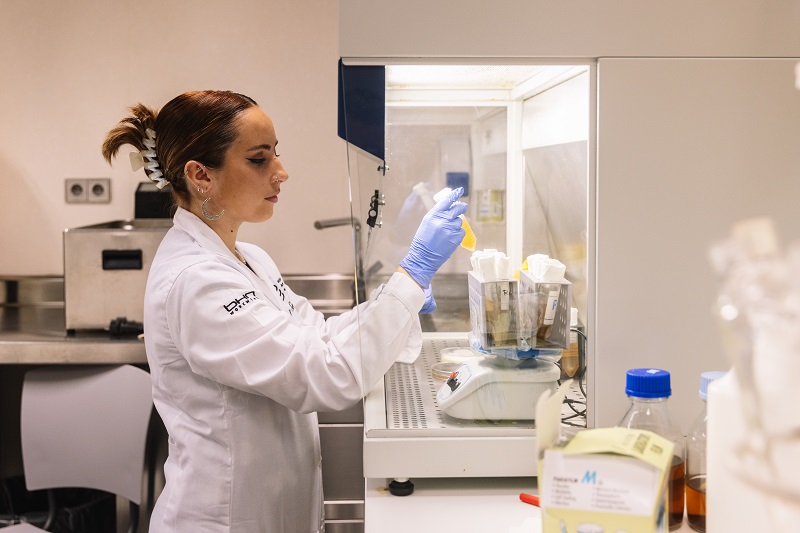Without creativity, there is no technique or proper use of products, and here we teach you why.
This master's program, designed especially for experienced chefs, represents the perfect opportunity for participants to take a qualitative leap in their gastronomic career. During the program, they will deepen their knowledge of products from their origin, exploring their various varieties, gastronomic properties, and their behavior in the kitchen. At the same time, they will immerse themselves in mastering modern techniques, ranging from culinary physicochemistry to the mastery of the most cutting-edge methods.
The highlight is the participation of teachers with extensive professional and educational backgrounds, as well as the opportunity to attend seminars and masterclasses with international product experts and renowned chefs. Additionally, the learning process is enriched with "learning journeys," and students will culminate their experience with the completion of a Master's Final Project.
Practical information
Start date: october 2024
Number of credits: 60 ECTS
On-site format
Duration: 9 months in total
6 months of on-site training (october 2024 to march 2025)
3 months of external curricular internships (april to july 2025)
Schedule
Monday to Friday from 3:30 pm to 8:30 pm (CEST)
18 Spots Available
Master's degree from MONDRAGON UNIBERTSITATEA awarded by the Faculty of Gastronomic Sciences of Basque Culinary Center
Inquiries and more information at cursos@bculinary.com
Master'S Objectives
Acquire the knowledge and skills to design well-executed recipes from conceptualization to presentation to the customer.
Gain advanced competencies in product knowledge and the consolidation of a wide range of traditional and modern culinary techniques interrelated with each other.
Complete a stage in restaurants that operate effectively.
Develop creative abilities to design dishes with personality by mastering products, varieties, and qualities and putting technique at the service of the concept.
Career Opportunities
We understand that professional opportunities may vary depending on geographical location and individual student preferences; however, with this program, participants can assume roles and functions in the following positions and areas:
Head Chef.
Head of section in restaurants and hotels.
Trainer or facilitator in training centers.
Research Chef for brands in the food industry.
Entrepreneur of businesses related to cooking.
Here's a preview
10+1 Reasons
Reasons why you should do this master’s degree
1
You will become a skilled professional in culinary technique, mastering the most advanced culinary applications.
2
You will learn about the latest techniques and trends in contemporary cuisine.
3
You will become a global chef, knowledgeable about culinary techniques from near and far cultures.
4
You will understand the gastronomic properties of ingredients and enhance your product applications.
5
You will acquire this knowledge to become the most highly valued professional wherever you go.
6
You will develop profound knowledge of technique to enable you to adapt to different business models.
7
You will learn from the best professionals.
8
You will have access to the best facilities and resources in the most realistic environment possible.
9
You will develop your sensory skills and gain a judgment based on technical and product knowledge.
10
You will enhance your creative abilities to craft consistent, well executed and personality-driven recipes, utilizing ingredients and qualities, integrating the customer experience, and achieving a well-rounded dish.
Directed to
The Master's program is aimed at individuals with the following profiles:
Graduates with a degree in Gastronomy.
Cooks with a degree from a vocational training program in cooking or restaurant management.
Cooks with non-regulated culinary studies from recognized institutions.
Applicants should have relevant work experience, preferably in various roles, for 3-5 years.
If you do not see your profile reflected in the points above and are interested in the Master's program, please do not hesitate to apply. We will assess your education and experience and get in touch with you.
Programme
The Master's Degree study programme gives students overall competencies, supplemented with a period of work placement during which the final project is prepared.
Module 1: The Chef and the Current Culinary Context (10 ECTS)
- Culinary History
- Sensory Analysis
- Culinary Chemistry
- Food Quality and Safety
- Sustainability
- Front of House and Service
- Developing Personal Skills
- Digitalization in the Restaurant Restaurant Management
- Nutrition
- Food and Beverage Pairing
Module 2: Culinary Techniques (5 ECTS)
- Dehydration Techniques
- Smoking and Salting in the Restaurant Cooking
- Techniques
- Water-Based
- Cooking Fat-Based
- Cooking Acid-Based
- Cooking Fermentation
- Techniques as Culinary Trends: .
- Lactic
- Alcoholic Fungi: Koji, Penicillium
- Scoby: Kombucha
- Sous-Vide Technique
- Gas and Siphon Techniques
- Thickening Agent Utilization Techniques
- Gelling Agent Utilization Techniques
- Emulsifiers and Foaming Agents
- Utilization Techniques Molding Techniques with Polycarbonate and Food-Grade Silicon
- Nixtamalization Technique
- Liquid Nitrogen and Dry Ice
- Other Products: Cocoa Butter, Wafer Paper, Inulin, Kuzu, Maltodextrin, Methylcellulose, Mannitol, Freeze-Dried Products, Kaolin, and Albumin
- Comprehensive Overview of the Applications of New Machinery in Restaurant R&D
- Pastry Techniques and the Sweet World
Module 3: Ingredients (11 ECTS)
- The Garden and Plant-Based Products
- Vegetables
- Seasonal-Based Cooking
- Introduction to Horticultural Techniques
- Eggs and Dairy
- Meat: Iberian Pork Game Offal or Poultry
- Seeds and Grains
- Spices
- Seafood: Fish Shellfish Crustaceans Mollusks Seaweed and Halophyte Vegetables
- Bread
Module 4: Creativity, Trends, and Innovation (4 ECTS)
- Innovation in Dishes
- Menu Concepts and Proposals
- Emerging Trends
- Challenges in Gastronomic
- Perception Creative Processes in the Restaurant
- Creative Methods in Plate Design and Architecture
- Creative Tools for Crafting Your Own Recipes
Master's thesis
In teams of 3-4 members, you will work on the design and development of an experimental gastronomic menu with 15-18 courses. The practical execution of this project will be presented before an expert jury during a dinner service. The evaluation panel for this Master's Thesis may consist of local gastronomy experts, professors from various knowledge areas at Basque Culinary Center, and renowned chefs.
Program outline
The curricular internships in companies will take place after the end of in-person classes and the completion of the master's project. These internships, lasting for 3 months, will primarily occur in well-known restaurants, both nationally and internationally, as well as in R&D departments specialized in gastronomy.
Calendar
Total duration: 9 months
Number of Credits: 60 ECTS
Academic period: october 2024 to march 2025
Curricular internships: april to july 2025
Methodology
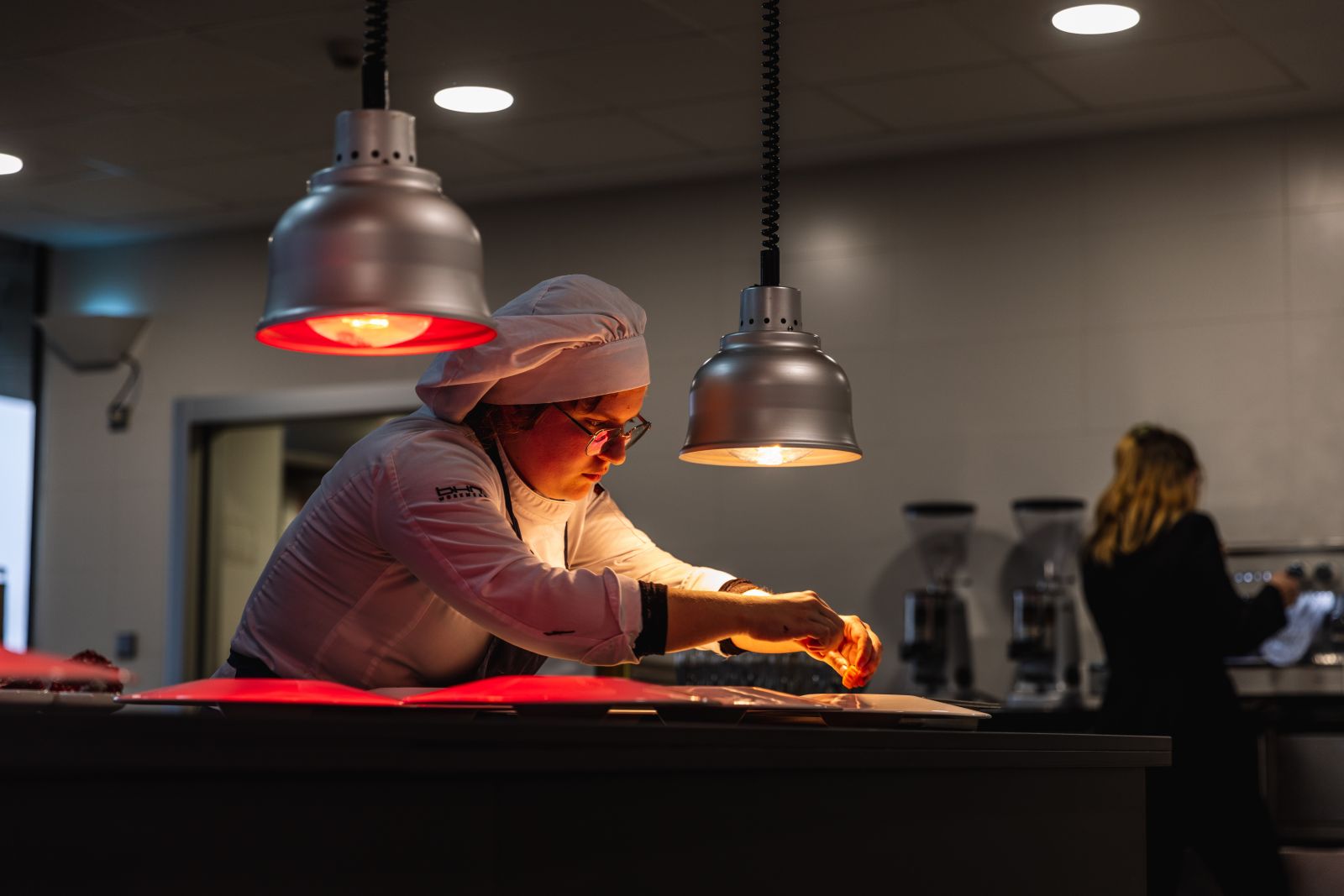
The Master's program follows the "learning by doing" methodology, based on the idea that the best way to learn is through hands-on experience and direct action. Instead of solely focusing on theory and passive instruction, this approach encourages students to acquire knowledge and skills through active participation in practical activities and real projects.
The on-site classes, led by an experienced teaching team, mark the beginning of this educational experience. These classes are complemented by non-presential learning activities that help students internalize and consolidate their knowledge, as well as prepare for upcoming sessions. Practical application of knowledge in real-life situations is a fundamental component of this master's program.
Student progress is continuously assessed and challenged, and they must meet periodic milestones evaluated by both the teaching team and external professionals from the Basque Culinary Center. On some occasions, students' culinary creations are also subject to testing and evaluations by real customers, providing valuable practical experience.
Teachers and guests
Learn from Industry Experts with Experience!
Students will have the opportunity to learn from accomplished professionals in the field, recognized for their academic, intellectual, and social influence, as well as their impactful contributions. The program features a panel of instructors composed of experienced culinary experts with specialized knowledge in the field of Gastronomy.
Master's coordinator
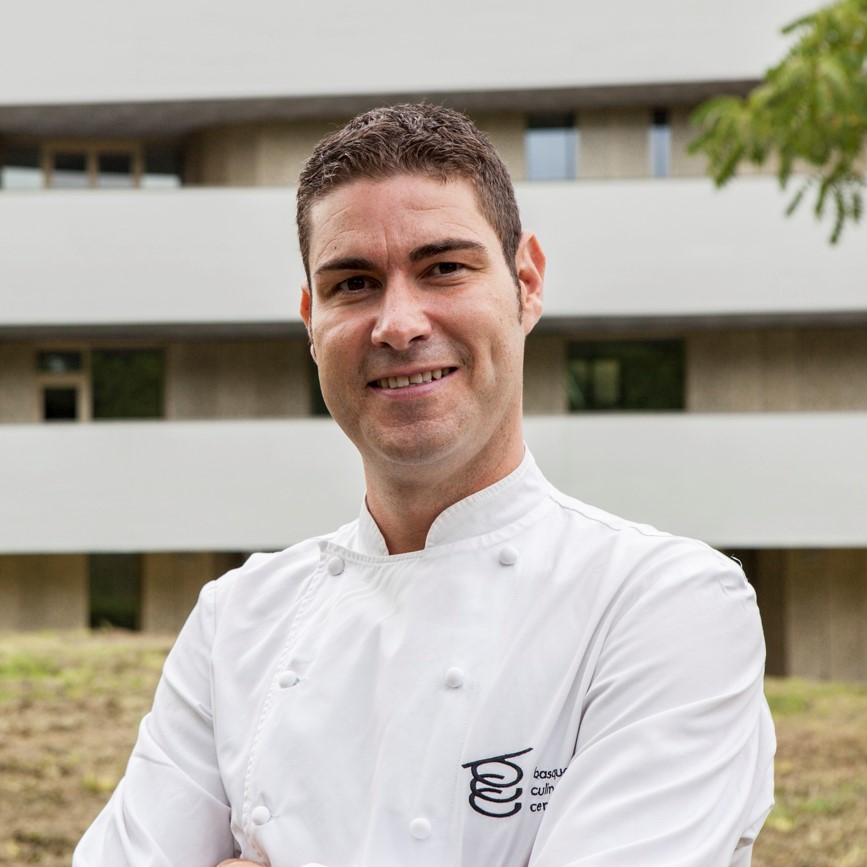
Luis Arrufat
Master's coordinator
Luis, a culinary luminary in his own right, not only serves as the coordinating chef for our Master's program but also imparts his profound knowledge as a professor in Restaurant Pastry and Sweet Cuisine. His culinary journey is nothing short of extraordinary. Picture this: he held the prestigious position of Head Pastry Chef at the iconic El Bulli Restaurant during its final year, an establishment that represented the pinnacle of gastronomy. His talent and dedication also led him to become an integral part of Ferrán Adriá's culinary team for a remarkable six years.
But Luis's impact extends far beyond El Bulli. He has taken on roles of great responsibility in the world of culinary innovation. From Arzak, where the avant-garde meets tradition, to the José Andrés Restaurant chain in Washington DC, a realm of culinary diversity and creativity. His contribution to research and development in these establishments has left an indelible mark.
In the present day, he serves as a culinary sage and advisor to several nationally renowned restaurants. His wealth of knowledge and passion for the art of cooking continue to inspire and shape the culinary landscape, making him the perfect guide for those embarking on their own culinary journeys.
Professors
The master's program includes cooking seminars and masterclasses with internationally renowned chefs. In previous editions, we have had guest chefs such as Mauro Collagreco (Mirazur), Jesús Sanchez (Cenador de Amós), Juanlu (Lu Cocina y Alma), Albert Adria (Enigma), Paco Perez (Miramar Restaurant), Luis Lera (Lera Restaurante), among others.
Fees / Grants
The total cost of the master's program is €14.150, which can be paid as follows:
€150 upon application (fully refundable in case of non-admission).
Upon confirmation of admission, 25% of the total amount, which is €3.500, as a reservation fee.
The remaining amount will be paid in three installments of €3.500 in October, December, and February.
The master's program fee includes:
Academic materials
Basque Culinary Center uniform
Access to the online learning platform
Seminars and masterclasses included in the Master's program
Educational visits (transport to the destination, visit management, and full board accommodation)
Coordination of curricular internships
Access to the Faculty's library with 6,000 references
Enrollment in the exclusive Basque Culinary Center student app
Issuance and delivery of the degree/diploma
Enrollment in the Bculinary Alumni service
Graduation event
Personalized access card
Admission
Basque Culinary Center has an admissions system aimed at ensuring that our students have the academic level and personal competencies necessary to successfully complete an innovative and demanding curriculum. After completing the application process, the Admissions Committee will select the admitted candidates.
-
Interested individuals must complete the online registration and upload a copy of their valid ID/NIE or passport for the registration to be validated. Regular registration will be available starting from December 2023.
-
In addition to completing the online registration, you must send the following scanned documentation to admisiones@bculinary.com:
ACADEMIC DOCUMENTATION:
STUDENTS CURRENTLY ENROLLED IN THE FINAL YEAR OF A BACHELOR'S DEGREE:
• Academic transcript showing all grades earned to date.
STUDENTS WITH PREVIOUS UNIVERSITY STUDIES COMPLETED IN SPAIN:
• Certified photocopy of the degree or certificate from the university confirming that the studies have been completed.
STUDENTS WITH PREVIOUS UNIVERSITY STUDIES COMPLETED IN A MEMBER COUNTRY OF THE EUROPEAN UNION, NORWAY, ICELAND, LIECHTENSTEIN, AND SWITZERLAND:
• SET (European Diploma Supplement) or, if not available, Certification from the home university confirming that the student is eligible to pursue Master's studies.
STUDENTS WITH PREVIOUS UNIVERSITY STUDIES COMPLETED IN A COUNTRY OUTSIDE OF THE EUROPEAN UNION, NORWAY, ICELAND, LIECHTENSTEIN, AND SWITZERLAND:
• Certification from the home university confirming that the student is eligible to pursue Master's studies. This certification must be apostilled or, in the case of countries that have not signed the Hague Convention No. 12 of October 5, 1961, legalized through consular or diplomatic channels.
LANGUAGE PROFICIENCY CERTIFICATION:
• Students whose native language is not English must provide official certification demonstrating that they have an English language proficiency level equal to or higher than B2 (Common European Framework of Reference for Languages, CEFR).
ADDITIONAL DOCUMENTATION:
In addition to the aforementioned documentation, all registrants must also submit:
• Updated CV.
• Motivation letter for enrolling in the training program.
-
A personal interview will be conducted to assess the suitability of the candidate based on their motivation and learning objectives.
-
Admitted students will be required to pay a reservation fee of €1,000.
It is important to note that:
• The application deadline will remain open until all slots are filled. The maximum number of admitted students will be 20.
• In the case of international students, the enrollment certificate required for visa processing will be provided once the reservation fee is received.
For any queries or further information, please contact admisiones@bculinary.com
Student service
Accommodation

LIVENSA LIVING SAN SEBASTIÁN, AN INNOVATIVE CONCEPT OF LODGING
Livensa Living San Sebastian is located in the neighborhood of Ibaeta, in a quiet area and a step away from Tolosa Avenue that leads to Ondarreta beach. It is an accommodation that takes care of all the details and is designed to make you feel at home during your stay in Donostia-San Sebastian. It has spaces to relax and share time in company.
Features to highlight:
- Single rooms with full kitchen and private bathroom
- Laundry
- Gym
- Common kitchens or "txokos".
- Leisure areas: living room, games room, cinema room, etc.
- Music rehearsal rooms
- Co-working spaces
- Private parking
Take advantage of the preferential rates for Basque Culinary Center students.
More information about accommodation here
Other accommodation options
Religious residences
These types of residence are small and have restricted entrance times. The rooms can be single or double and they do not always have an ensuite bathroom. Those that offer full board may not offer all the meals at weekends. Admission to these residences entails a personal interview with the families. The prices given below are approximate.
Female residences
Residencia Compañía de María
Camino de S. Bartolomé, 24. Tel 943 464795. Regimen full board Precio aproximado €625/month
Esclavas del Sagrado Corazón
Avda. Gral. Zumalakarregi, 11. Tel 943 210800. Regimen full board Precio aproximado €580-€615/month Residents must leave the residence at weekends with the exception of examination periods.
Misioneras del Sagrado Corazón
Paseo de la Fe, 34. Tel 943 456072. Regimen full board Precio aproximado €350-€490
Residencia Villa Alaidi E.A.M.
Paseo de Heriz, 95. Tel 943 210866. Regimen half board or full board Precio aproximado from €450 to €590/month No se ofrecen comidas durante el fin de semana aunque hay una cocina a disposición de las residentes.
Residencia el Carmelo Pasión
Ilumbe, 8. Tel 943 456600. Regimen full board Precio aproximado €540-€605/month
Colegio Mayor Jaizkibel
C/ Aldapeta, 49. Tel 616 369 815. Regimen Pensión completa. Precio aproximado 932€/mes. No hay cocinas disponibles para las residentes pero las estudiantes de BCC podrán realizar prácticas de cocina.
Residencia Cet Oria
Paseo de Ayete, 25. Tel 943 242400. Regimen pensión completa. Precio aproximado 370€. El precio del alojamiento y pensión se costea trabajando en el servicio de alimentación. Admisión mediante entrevista.
Camino de S. Bartolomé, 24. Tel 943 464795. Regimen full board Precio aproximado €625/month
Avda. Gral. Zumalakarregi, 11. Tel 943 210800. Regimen full board Precio aproximado €580-€615/month Residents must leave the residence at weekends with the exception of examination periods.
Paseo de la Fe, 34. Tel 943 456072. Regimen full board Precio aproximado €350-€490
Paseo de Heriz, 95. Tel 943 210866. Regimen half board or full board Precio aproximado from €450 to €590/month No se ofrecen comidas durante el fin de semana aunque hay una cocina a disposición de las residentes.
Ilumbe, 8. Tel 943 456600. Regimen full board Precio aproximado €540-€605/month
C/ Aldapeta, 49. Tel 616 369 815. Regimen Pensión completa. Precio aproximado 932€/mes. No hay cocinas disponibles para las residentes pero las estudiantes de BCC podrán realizar prácticas de cocina.
Paseo de Ayete, 25. Tel 943 242400. Regimen pensión completa. Precio aproximado 370€. El precio del alojamiento y pensión se costea trabajando en el servicio de alimentación. Admisión mediante entrevista.
Male residences
Pº Ayete, 25. Tel 943 21000. Regimen Pensión Completa. Precio aproximado 1.055€/mes.
Pº Maddalen Jauregiberri,2. Tel 943 454400. Regimen habitación y desayuno. Precio aproximado 320€-380€/mes.
Secular residences
These are mixed and are larger than the religious residences. As a general rule, they do not have entrance times.
Mixed residences
Numad Studios
Paseo de Miramón, 162. Tel (+34) 943 56 91 28. Regimen acommodation in studio with fully furnished kitchen and private bathroom Precio aproximado desde 600€ hasta 880€/mes A tan solo un paso de Basque Culinary Center. Instalaciones equipadas con un amplio espacio de cocina dedicado a prácticas culinarias, salas de estudio, gimnasio y zona lounge para socializar con otros residentes.
Colegio Mayor Olarain
Pº Ondarreta, 24. Tel 943 003300. Regimen alojamiento y desayuno, media pensión o pensión completa Precio aproximado desde 498€ hasta 1.090€/mes. El precio incluye la limpieza del uniforme de cocina. No hay cocinas disponibles para los residentes aunque los estudiantes de BCC podrán hacer prácticas de cocina en un espacio debidamente equipado para ello.
Residencia Manuel Agud Querol
Pº Berio, 9. Tel 943 563000. Regimen alojamiento. Precio aproximado desde 403€ hasta 690€/mes. Residencia de la Universidad de País Vasco; alojan prioritariamente a los estudiantes de la UPV pero pueden tener plazas disponibles desde la reciente ampliación.
Paseo de Miramón, 162. Tel (+34) 943 56 91 28. Regimen acommodation in studio with fully furnished kitchen and private bathroom Precio aproximado desde 600€ hasta 880€/mes A tan solo un paso de Basque Culinary Center. Instalaciones equipadas con un amplio espacio de cocina dedicado a prácticas culinarias, salas de estudio, gimnasio y zona lounge para socializar con otros residentes.
Pº Ondarreta, 24. Tel 943 003300. Regimen alojamiento y desayuno, media pensión o pensión completa Precio aproximado desde 498€ hasta 1.090€/mes. El precio incluye la limpieza del uniforme de cocina. No hay cocinas disponibles para los residentes aunque los estudiantes de BCC podrán hacer prácticas de cocina en un espacio debidamente equipado para ello.
Pº Berio, 9. Tel 943 563000. Regimen alojamiento. Precio aproximado desde 403€ hasta 690€/mes. Residencia de la Universidad de País Vasco; alojan prioritariamente a los estudiantes de la UPV pero pueden tener plazas disponibles desde la reciente ampliación.
Accommodation in shared flats
Prior authorisation from interested parties, the BCC Students'Office favours contact among admitted students so that they can organise themselves to share flats. Traditionally, students have created groups in social media to contact each other. The BCC also informs students about rented flat offers that the owners send us. The average price per student in a shared flat in Donostia-San Sebastian is around €300 per month.
Procedures before travelling
Students from European Union member countries, Norway, Switzerland. Liechtenstein and Iceland will not require a visa to reside in Spain.
Other international students will have to request a long-term student visa which will allow them to reside in Spain for a period longer than 180 days.
Visas should be requested from, and issued by the Diplomatic Missions and Spanish Consul Offices abroad. It is important to obtain information on the required documentation and gather it as soon as possible, since the relevant authorities may take up to two months to notify that visas will be granted.
Once students have arrived in Donostia-San Sebastian, they have one month from the time of their arrival to request the foreign students’ card at the Foreign Residents Office in Donostia-San Sebastian. The students’ office of the BCC will provide the necessary information to students in this matter.
Sport service
Through the MU Sports Service, students can access team sports as well as individual sporting activities and Group trips (weekend skiing, surfing trips….).
Donostia-San Sebastian also has an extensive offer of municipal sporting facilities. The Kirol Txartela (sport card) permits access to all the city’s municipal facilities at a very economical price. For more information, go to the following link.
Cost of living info
Information on the COST OF LIVING in San Sebastian is given below:
The best way to move around the city is with the network of urban buses. The company which provides this service is Compañia del Tranvia de Donostia-San Sebastian.
Their web page www.dbus.es contains all information on routes, timetables and tariffs. The web page also enables the calculation of the bus route between two points and its estimated duration.
Students can benefit from monthly season tickets which reduce the cost of travelling by bus.
Donostia - San Sebastián
Donostia-San Sebastian is the administrative capital of Gipuzkoa, one of the territories that integrates the Basque Country. There are two official languages: Spanish and Basque.
On the banks of the Bay of Biscay,, Donostia-San Sebastián is a small town within a natural framework of incomparable beauty. A holiday destination for monarchs and nobles during the Belle Epoque, Donostia-San Sebastian arose as a lordly city where tradition and modernity exist side by side.
If there is something that can compete with its spectacular beauty that is its gastronomy: cradle of the “new Basque cuisine”, Mecca of culinary avant-garde and the world capital of the pintxo, Donostia-San Sebastian is the city with the most Michelin stars per square metres in the world. The importance of its restaurants, its famous gastronomic societies and the quality of its raw material convert Donostia-San Sebastian into a gastronomic reference in the world. Not in vain, the British magazine, “Which”, chose Donostia-San Sebastian as the best gastronomic destination in the world.
Over the last few years, innovation and sustainability have been the two main pillars for the development of Donostia-San Sebastian, which has fostered an ideal city of pedestrians and bicycles.
Why study gastronomy in Donostia-San Sebastian?:
- ecause in Donostia-San Sebastian, as in the rest of the Basque Country, gastronomy forms part of society and good food is present at any event and celebration. Donostia-San Sebastian, a city of 185,000 inhabitants, has 120 gastronomic societies.
- Because four of the eight restaurants with three Michelin stars in Spain are in the Basque Country, three of them in Donostia-San Sebastian.
- Because of its cultural offer, which includes internationally renowned film and jazz festivals. Donostia-San Sebastian has been named as European Capital of Culture for 2016.
- Due to its beaches, ideal for practicing surf all year round.
- Due to its mountains, just 2.5 hours from the Pyrenees.
- Because it is a safe, accessible and welcoming city.
How to reach Donostia-San Sebastian
Donostia-San Sebastian is connected to the main Spanish cities by bus, train and plane. The airport of Donostia-San Sebastian is 20 kilometres from the city. It is a small airport with direct flights from Madrid and Barcelona. It has a bus service to the city centre. The international airport of Bilbao is one hour from Donostia-San Sebastian, and it is connected to the city with a frequent bus service from the actual airport. The international airport of Biarritz is 45 minutes away although it only offers a direct bus to Donostia-San Sebastian once a day. DISTANCE IN KMS.
- Bilbao – 99 km
- Biarritz – 50 km
- Madrid – 450 km
- Barcelona – 570 km

BCC Students
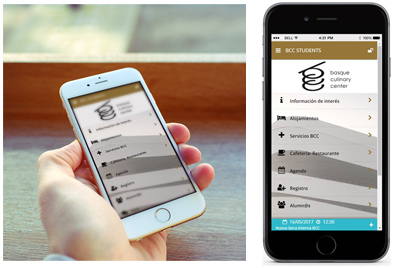
During their study years, BCC students will have access to the BCC Student APP. Through this APP students will be informed about grants and scholarships, job opportunities, extracurricular learning opportunities, events, invitations to exclusive Master Classes... They will also be informed on student discounts, BCC Cafeteria or Restaurant reservations, transportation, etc.
BCulinary Alumni
You can access all the information in the following link.

